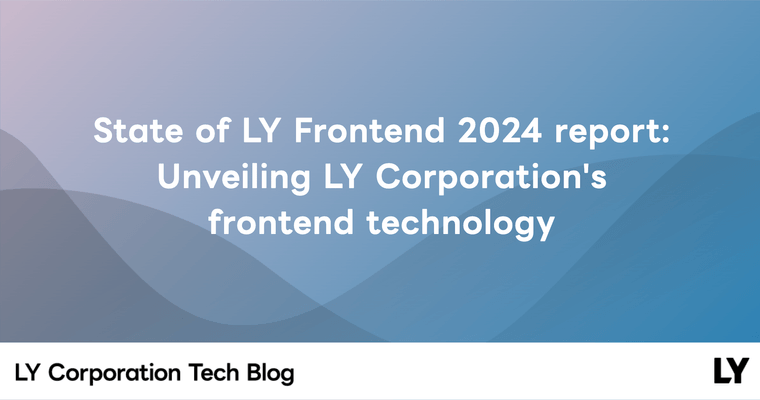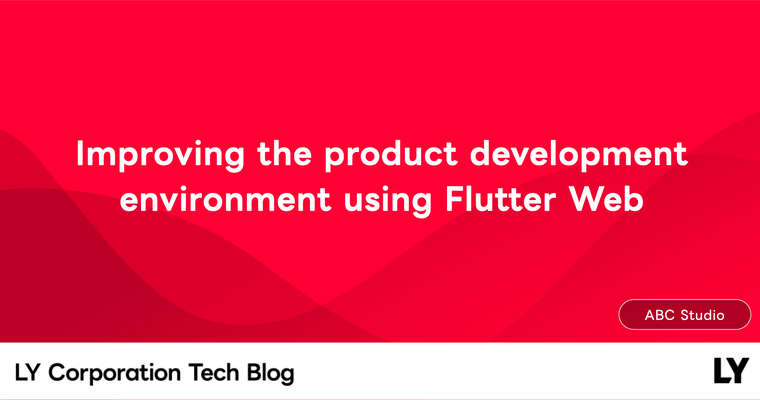Hello, I'm Okazaki, a front-end engineer. I'm excited to share highlights from our internal event, the "Front-end Global Workshop 2024", held at the Kioicho office on January 21, 2025. This event was designed to foster information sharing and interaction in the front-end domain.
The ever-evolving workshop
At LY Corporation, we offer a wide range of services globally, including communication apps and portal sites. Our team primarily focuses on the development and operation of service front-ends, collaborating with engineers from countries like Korea, Taiwan, Vietnam, and Thailand to grow together.
The "Front-end Global Workshop" is an event aimed at sharing technology and deepening cross-border interactions in a diversifying development environment. Since its inception at the company (which was then going by the name, LINE) in 2017, the workshop has steadily grown, with more speakers and participants each year. Initially, there were 45 participants, but it has now expanded into a large-scale event with over 620 attendees.
Originally, the venue alternated between Japan and Korea, but due to COVID-19, the event was postponed for two years and then transitioned to an online format. This time, we embraced a hybrid style, combining offline participation at the Kioicho office with online participation through webinar.
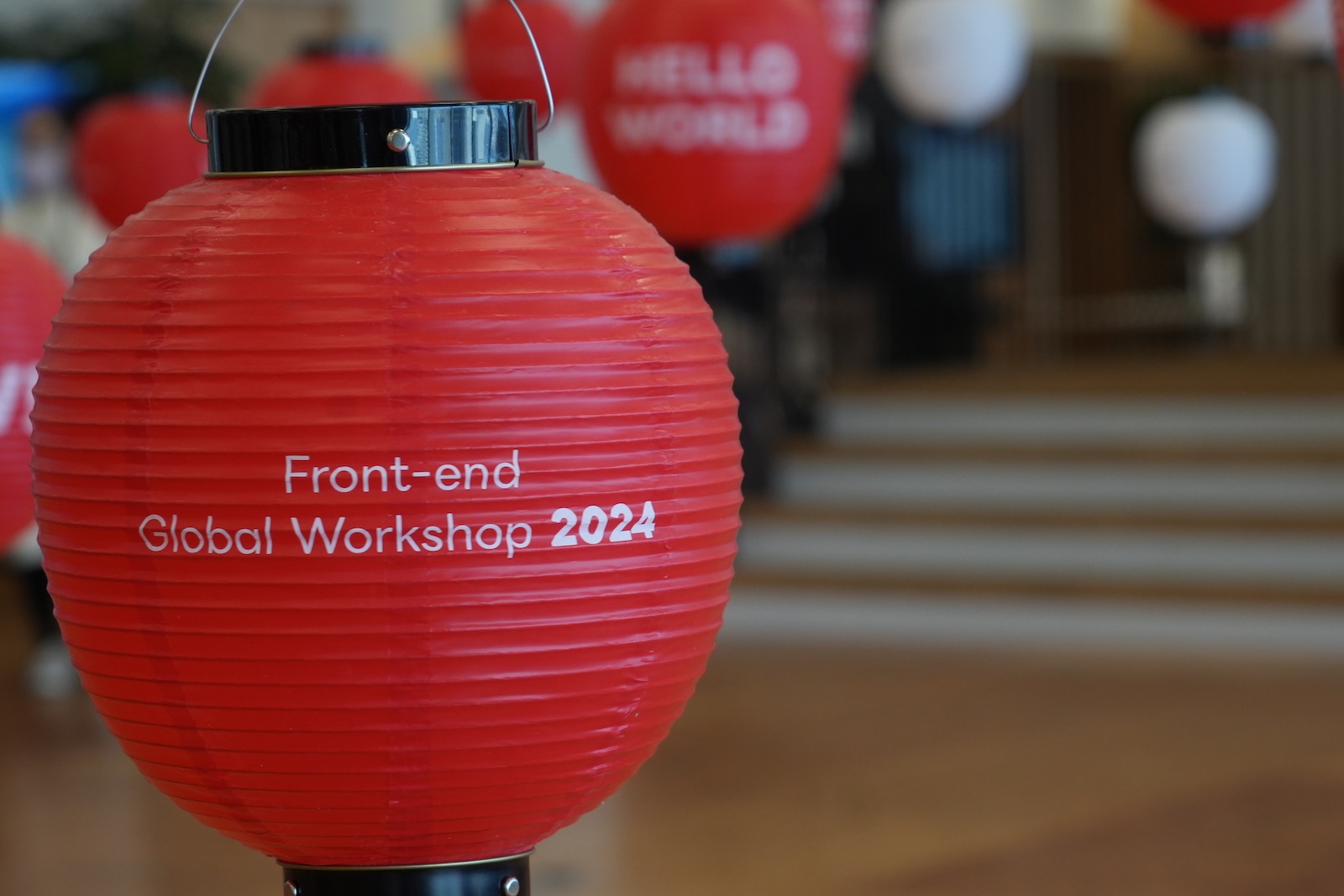
Hosting 20 enriching sessions at once
To accommodate a diverse audience, we organized two types of tracks, offering a total of 20 sessions (10 sessions × 2 tracks) running continuously from 10 AM to 7 PM.
- Technical Track: Focused on technical content related to the front-end
- Motivation Track: Centered around events that boost motivation at work
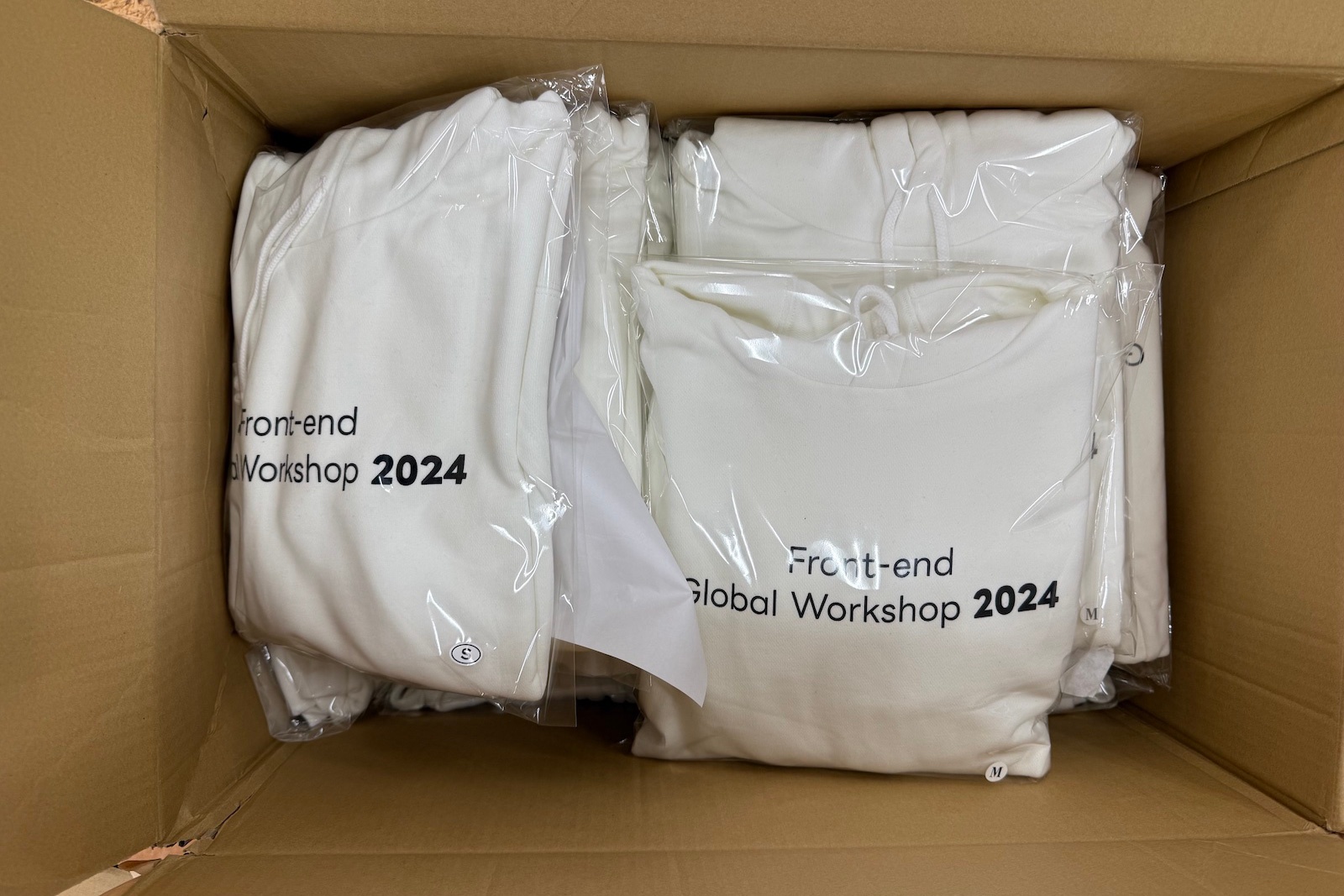
This workshop featured presentations from engineers in Korea, Taiwan, Vietnam, and Thailand. I took on the challenge of attending one track in person while simultaneously viewing the other track online, managing to keep up with all 20 sessions in real-time.
In terms of thematic trends, "UI libraries" were the most common topic, making up about 35% of the sessions, highlighting their essential role in front-end development. "Generative AI" was the next most popular topic, accounting for about 30%, which was surprisingly more popular among engineers than expected. Additionally, sessions covered a wide range of themes, including service improvement case studies, DevOps, design systems, micro front-ends, and team building, resulting in a rich and fulfilling content lineup.
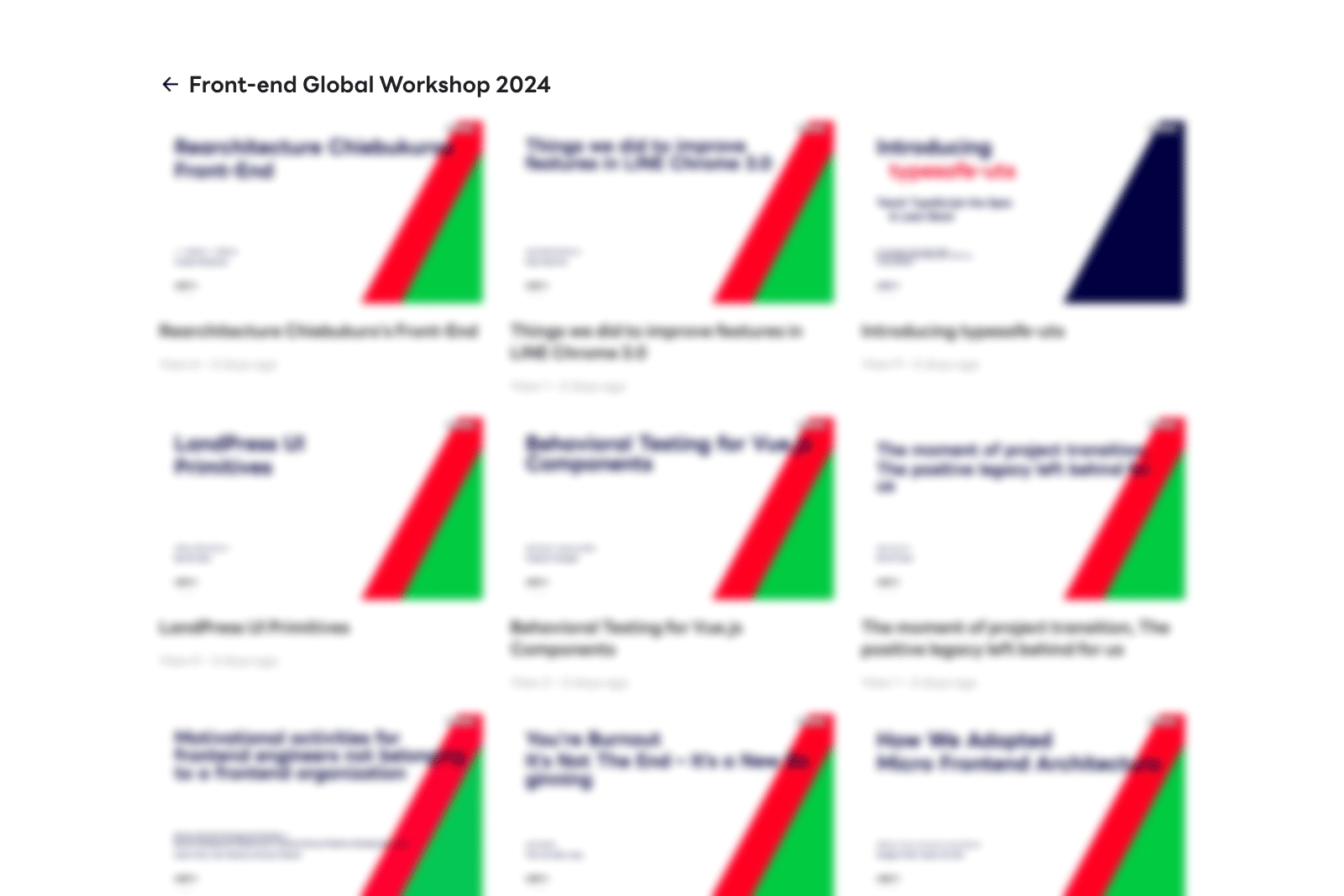
The most memorable session
Among the many sessions, the most memorable was "State of LY Frontend" by Kyohei Morimoto, the leader of the web technology education team, who kicked off the Technical Track. Based on a survey conducted with 342 LY Corporation front-end engineers, he succinctly organized our technical attributes, knowledge, and development environment trends, visually illustrating the differences between LINE and Yahoo, as well as Japan and overseas, which left a strong impression.
Thanks to this session, we gained a better understanding of our strengths and weaknesses, providing a significant guide for considering what actions to take next. Details of the survey can be found in Akihiro Tamada's "State of LY Frontend 2024 Implementation Report".
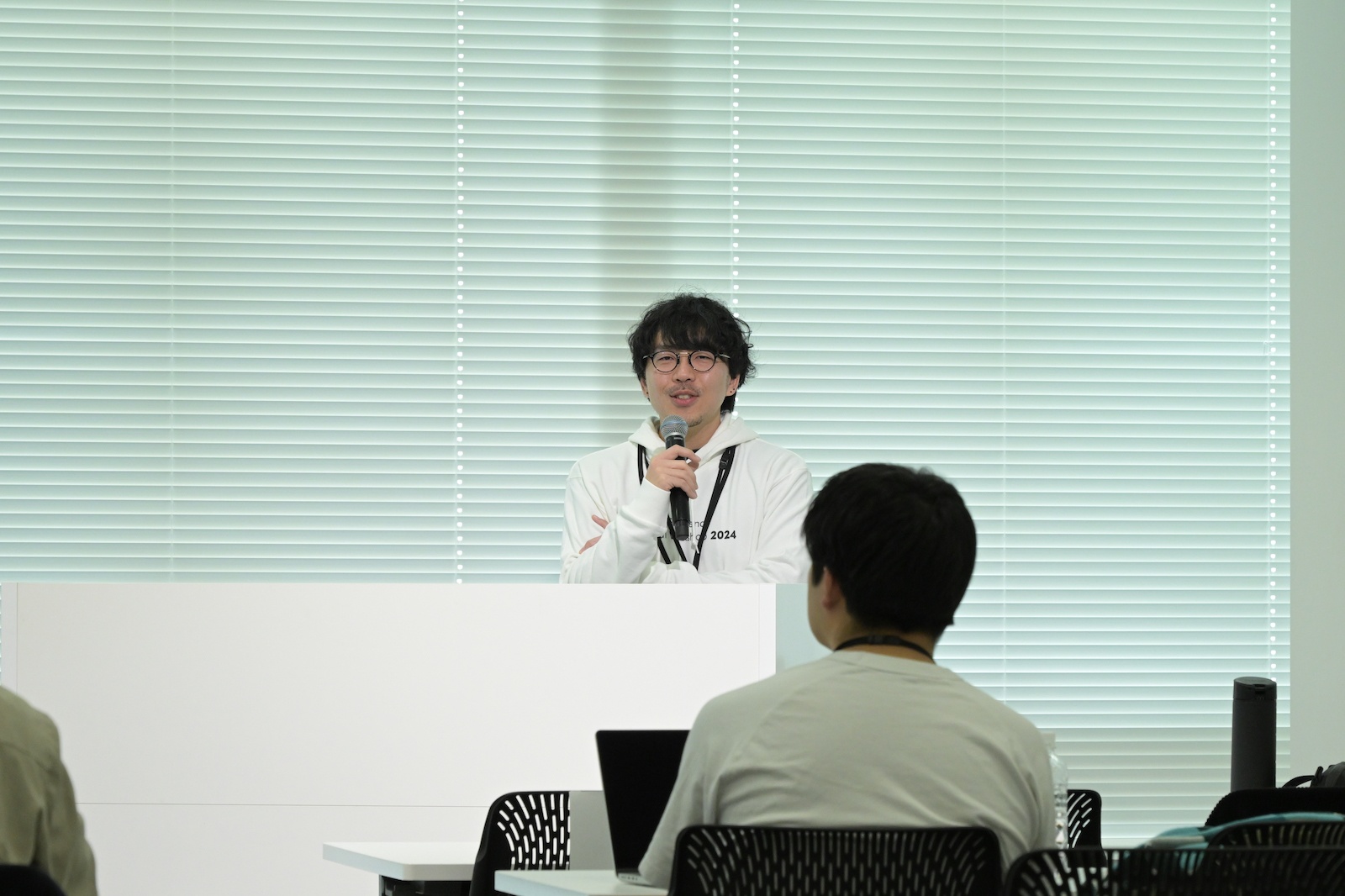
In the Motivation Track, "How I build the Engineering team at LINE Thailand" by Kasetsin Ball, CPO of LINE Thailand, gained popularity. His story of joining as a programmer, experiencing various roles, and forming an organizational culture based on the belief that "technology enriches people's lives" was impressive. Particularly, the core value of "ACCEPT FAILURES" resonated strongly with me. This session reaffirmed that embracing failures and learning from them is a driving force for product development and team growth.
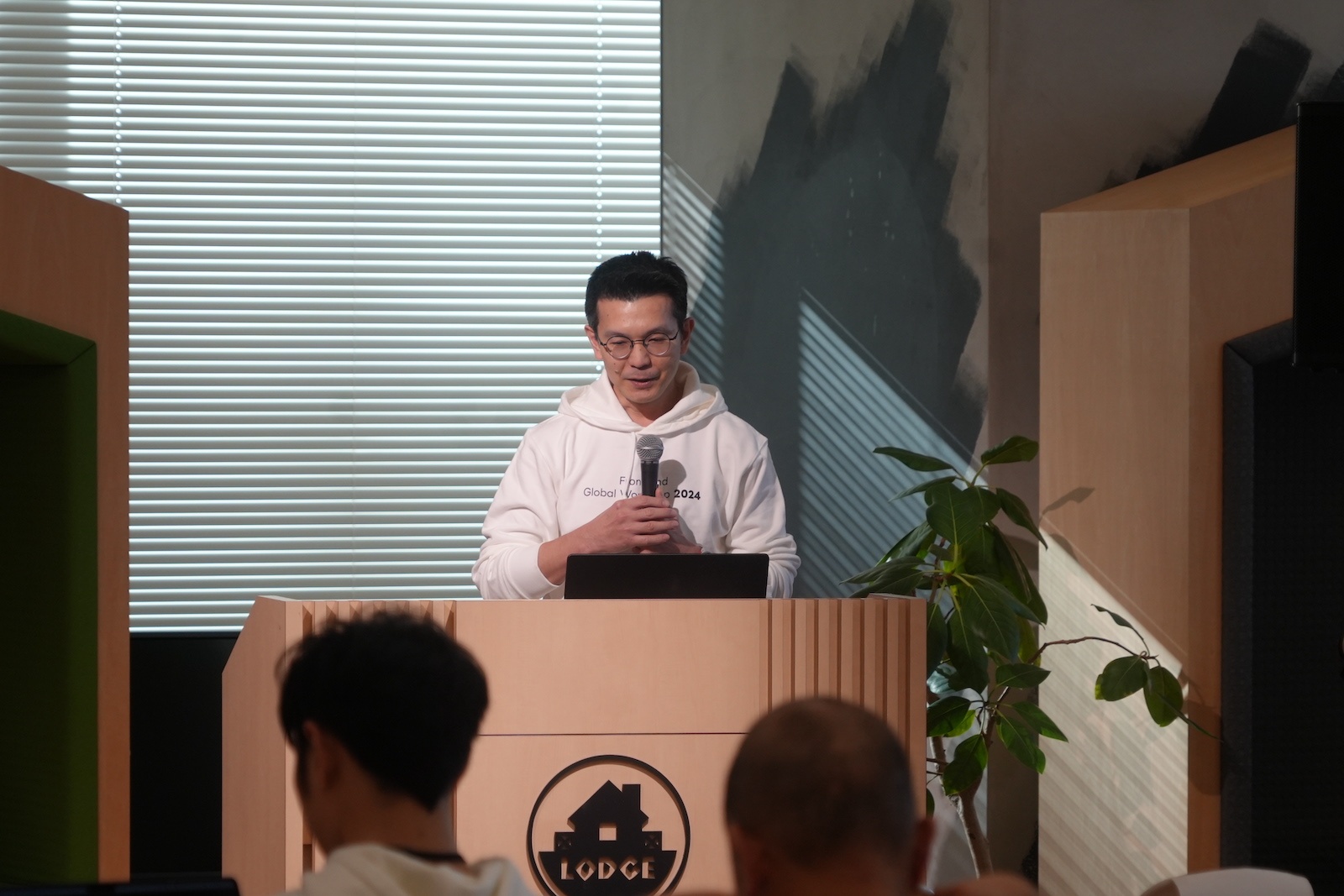
For insights from the speaker's perspective, "Efforts to share front-end knowledge that support learning and challenges (Front-end Global Workshop 2024 Report)" by Hiroki Iseki and others is a useful reference.
Cross-border interaction among front-end engineers
In the seminar venue's hallway, a front-end quiz open to everyone was displayed, with many participants taking on the challenge, though only one person managed to answer correctly, highlighting its extreme difficulty.
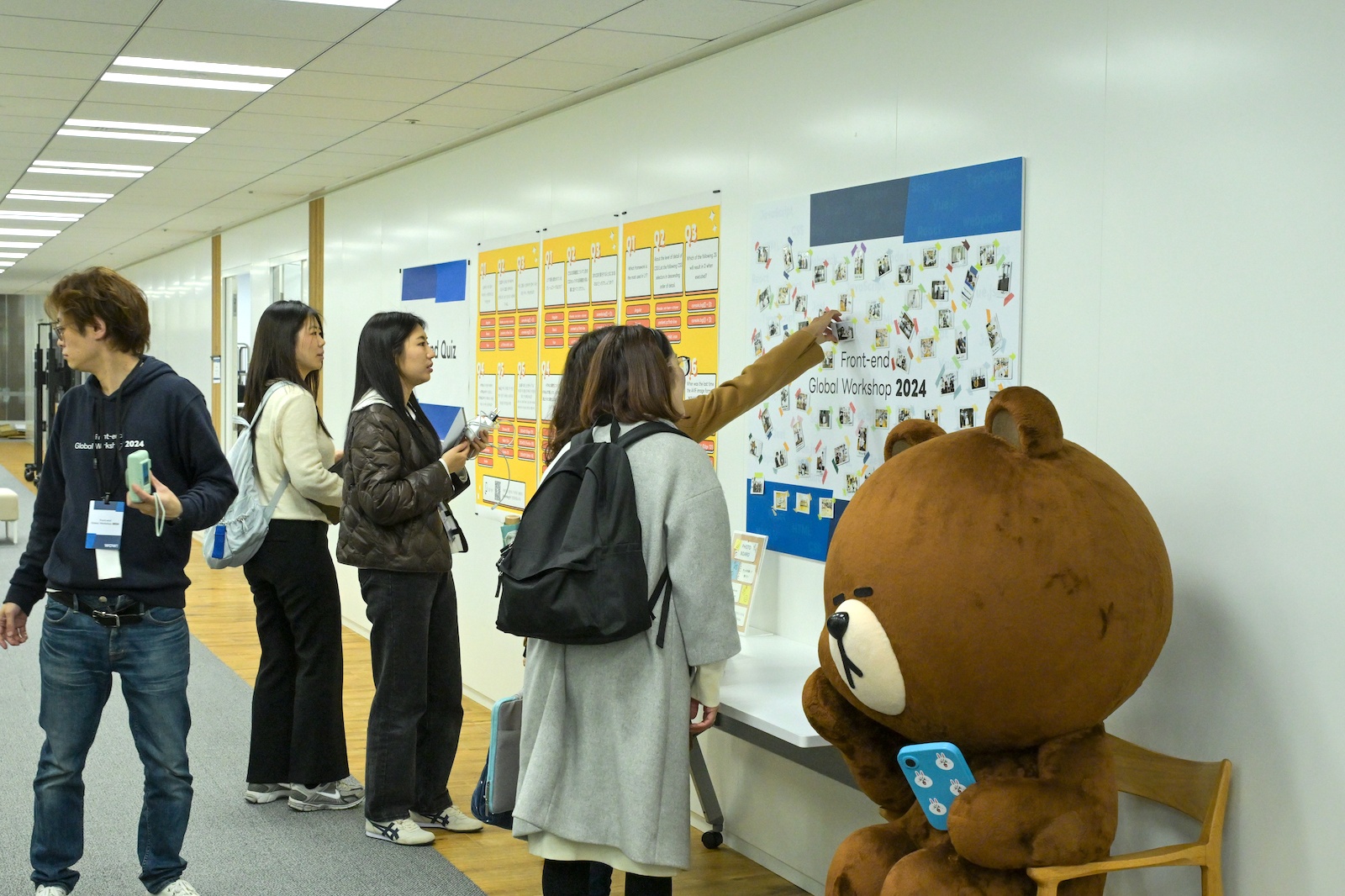
Between sessions, vibrant and beautiful donuts appeared, further elevating the participants' excitement.
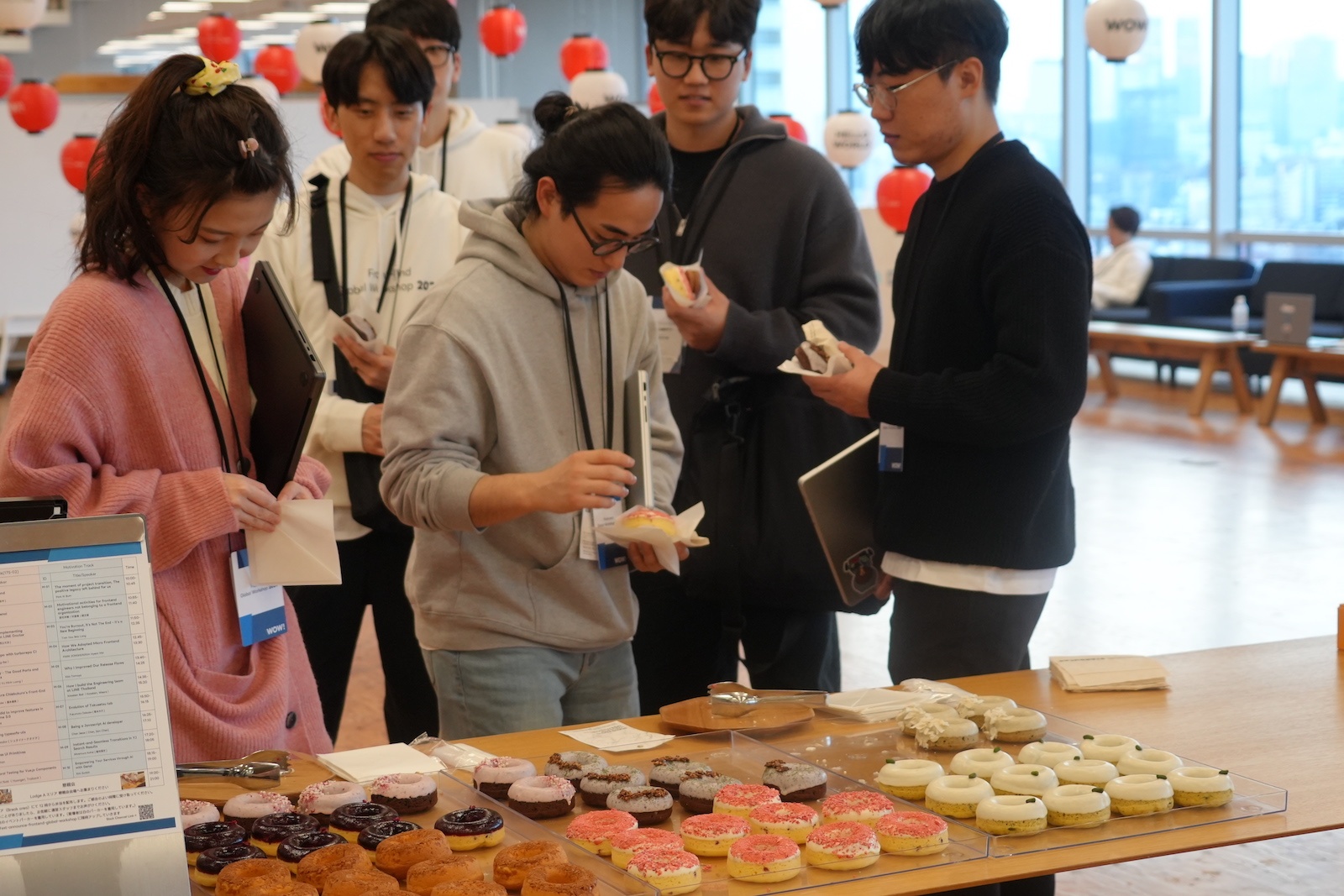
After the workshop, front-end engineers gathered to enjoy meals and engage in casual to technical and work-related discussions, deepening offline interactions. There were many instances where people met face-to-face for the first time despite knowing each other's names, and I personally had a meaningful time introducing and being introduced to members.
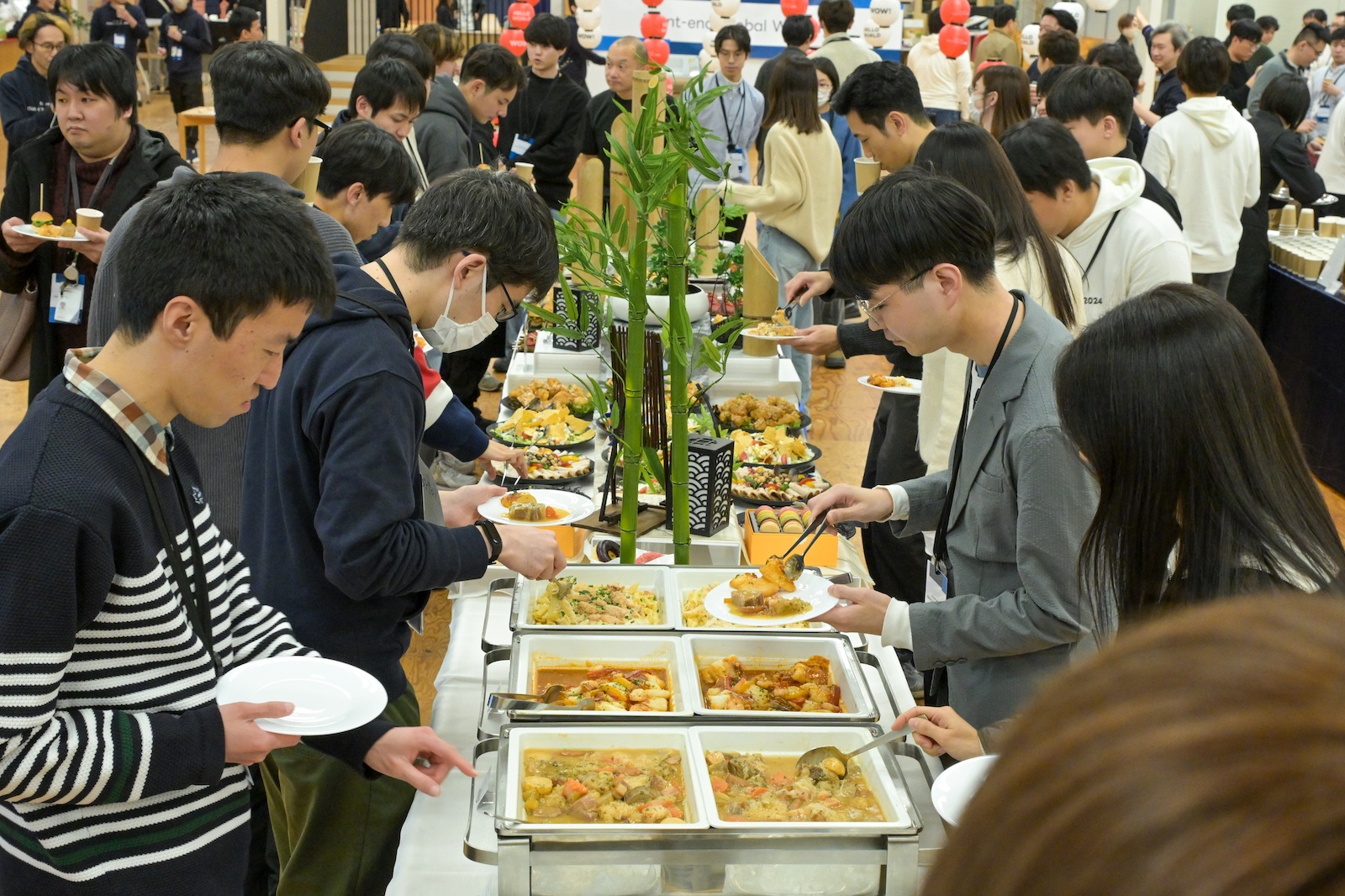
In conclusion
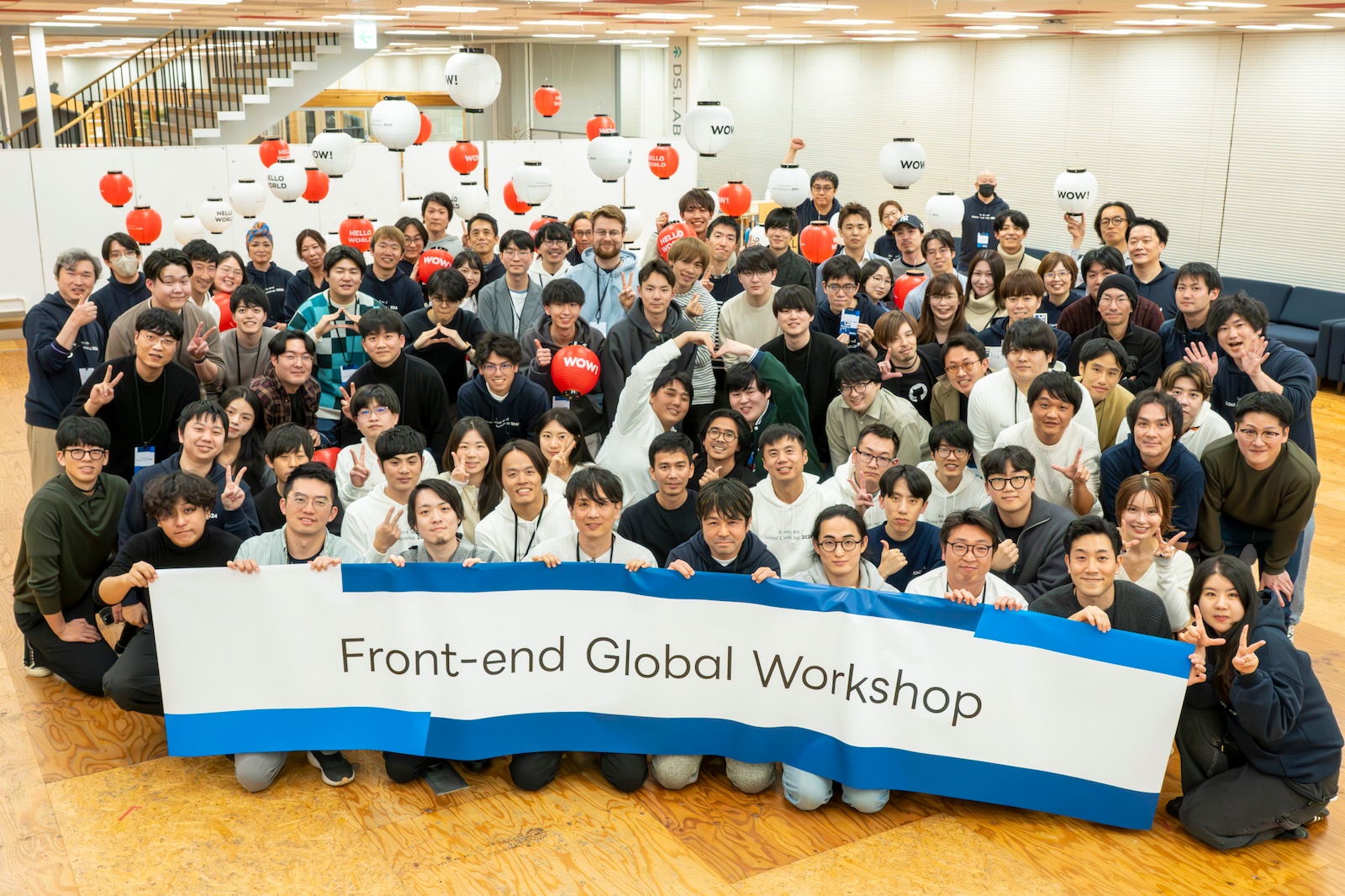
We aim to enhance not only the user experience but also the developer experience. We aspire to create an environment where engineers can develop comfortably and grow together.
If there are any front-end engineers who resonate with our vision and would like to join us, please apply!
